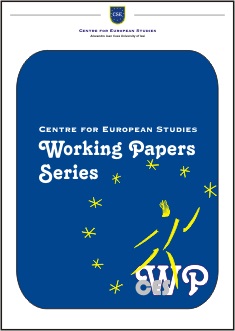THE RELATIONSHIP BETWEEN EU AND RUSSIA: SYMBIOSIS OR COMPETITION?
THE RELATIONSHIP BETWEEN EU AND RUSSIA: SYMBIOSIS OR COMPETITION?
Author(s): Stefan Grigore, Ligia Corduneanu, Ion MușcheiSubject(s): Politics / Political Sciences
Published by: Editura Universităţii »Alexandru Ioan Cuza« din Iaşi
Keywords: Russia; European Union; Crimea, Energy; Commerce; Eastern and South-eastern Europe; soft power; hard power, normative power
Summary/Abstract: Cooperation and trust between Russia and the European Union (EU), two of the most important international actors, have reached the lowest level since the Cold War. The main bone of contention has been the future of countries situated in Eastern Europe, in the so-called ‘in-between’/’buffer’ region. On the one hand, the EU aims at strengthening links with the six Eastern European partners – Armenia, Azerbaijan, Georgia, Belarus, Moldova and Ukraine – by encouraging reforms and by luring them to embrace European core values. However, Russia’s counteractions have mitigated the EU’s plans towards its vicinity - as the case of Ukraine best points out. Apart from the geopolitical competition over the ‘shared’ neighbourhood, the EU-Russia relation has started to depend heavily on the energy issues further complicating the already complex background. Russia uses the energy card as tool to influence the shape of the regional context, whereas the EU responds with a superior technological advantage and a more attractive economic and political agenda. Having this a backdrop, this paper aims to underline that a clear competition between the two players exists, fomented by a fundamental ideological difference in perceiving the outside world.
Journal: CES Working Papers
- Issue Year: 6/2014
- Issue No: 2A
- Page Range: 40-55
- Page Count: 16
- Language: English

